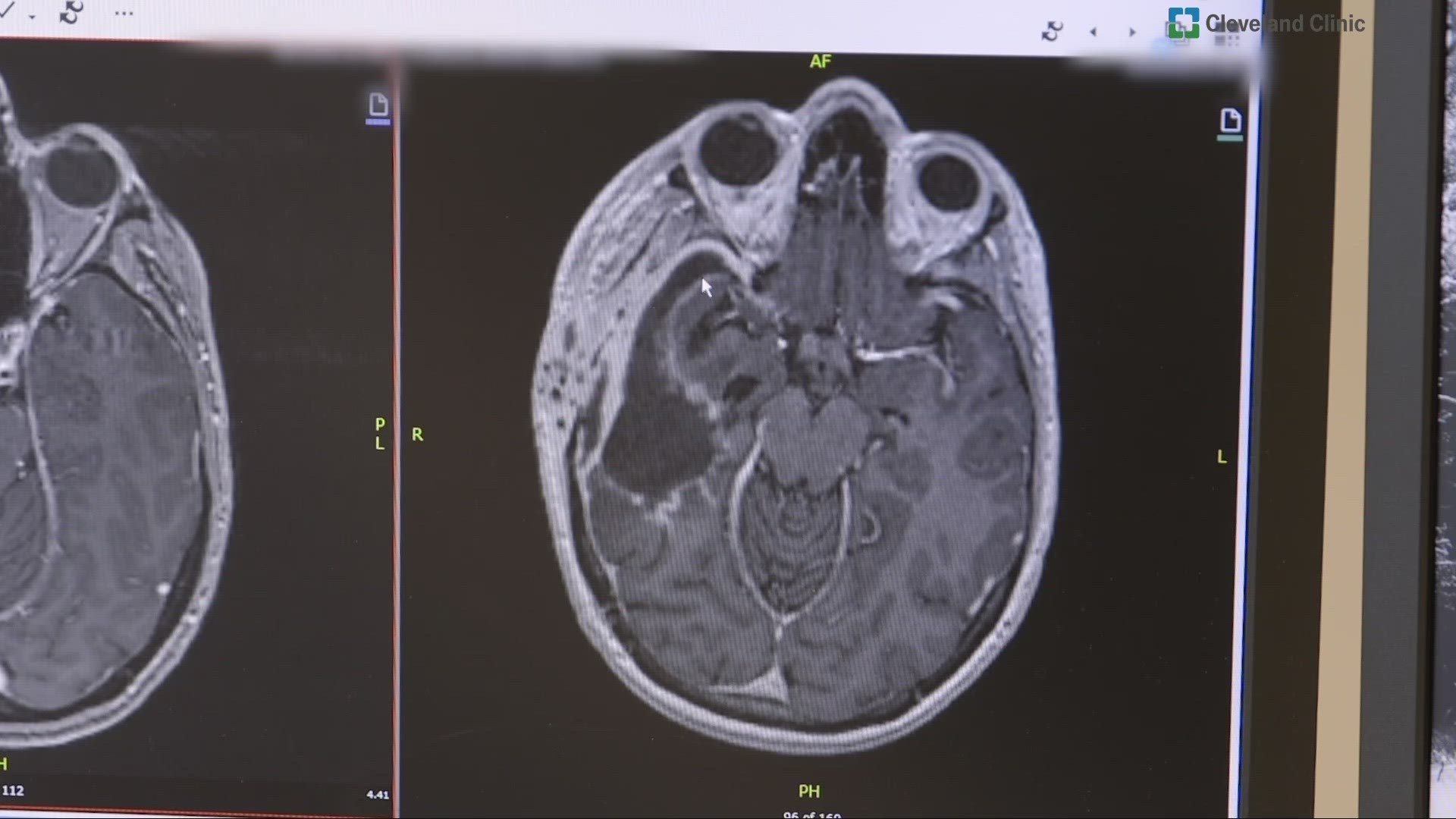CLEVELAND — An experimental vaccine is bringing hope to those battling fatal brain tumors.
Early results show the shot doubled survival time for people with glioblastoma, a brain cancer that is usually fatal 16 months from diagnosis.
In July 2017, 10 weeks after her wedding, Katy Sanchez of Chelsea, Michigan, received a devastating diagnosis. She had a glioblastoma brain tumor, and within days had surgery to remove as much as possible. That was followed by radiation and finally chemotherapy, all of which are standard treatment.
Her father scoured the computer looking for guidance, and found a clinical trial of a brain tumor vaccine being done at Cleveland Clinic.
"You know, using an odd turn of phrase, it was kind of a 'no brainer," Katy said of not hesitating to sign up for the trial. "In the face of only having 12 or 15 months to live, you'll pretty much do anything."
Three months after her diagnosis, Sanchez went to the Clinic to start the vaccine therapy. Every 10 weeks, she returns to continue getting the shots, even now six years later. During each of those visits, she also receives an MRI to see if her tumor has returned.
There has been no change for the last six years, and Katy's not the only one.
"When you see in one institution three patients on the same clinical trial who are out five or six years from this disease which is almost universally fatal, you've got to believe that it's proof of concept," Cleveland Clinic neuro-oncologist Dr. Mark Malkin told 3News. "That's why a phase three study is being done."
The vaccine is called SurVaxM, made by New York-based MimiVax. Glioblastoma is aggressive and grows fast, so SurVaxM stimulates the immune system to attack survivin, a cancer molecule present in all glioblastomas that is vital to their survival.
The vaccine was developed by Dr. Robert Fenstermaker, chair of the department of neurosurgery and director of the neuro-oncology program at Roswell Park Comprehensive Cancer Center in Buffalo; and Dr. Michael Ciesielski, CEO of MimiVax and a member of Roswell Park's department of neurosurgery.
"We've tried for decades, literally, and we're still trying to find the right immunotherapy approach in glioblastoma," Malkin said. "We want to get to where melanoma and non-small-cell lung cancer and renal cell cancer have gotten to in the past several years."
For Katy, the last six years have been transforming. She became a new mom via surrogate, and continues living her life 10 weeks at a time between injections.
"People ask me if it gets easier, and not really, to be honest, but it's surreal to think it's been this many years now," she said. "I do my very best to be incredibly humble in the face of a disease that I know is a lot stronger and can grow a lot faster, but I'm so incredibly fortunate and grateful that my dad found this study and that there's people who dedicate their lives to save people like me."
The next phase of the trial hopes to enroll 265 patients from 10 centers across the U.S. including, Cleveland Clinic. Patients must be newly diagnosed with glioblastoma, and have had a gross total resection of their tumor on MRI scan, and will not have yet received any other treatment for their tumor.
Not everyone with newly diagnosed glioblastoma will qualify for the study as the eligibility requirements are stringent. Click here to see the requirements and to read more about the study.
Call the Cleveland Clinic answer line at (216) 444-7923 if you meet the eligibility requirements.
MORE FROM 3NEWS...

